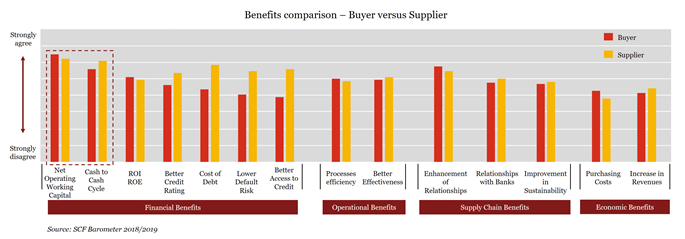How can we apply supply chain management to finance?
In this article, Paul Antoine BOHOUN (ESSEC Business School, Master in Strategy & Management of International Business (SMIB), 2020-2021) explains how can we apply supply chain management to finance.
At the end of my master’s degree in logistics and transports, I did an internship at Logistics & Supply Chain Consulting (LSCC) as a junior consultant. LSCC is an Abidjan based consulting firm composed of 10 employees and is engaged in various missions of counsel, audit, and training for public or private entities on several supply chain related subjects. During my time there, I have been able to work on procurement, inventory management, and operational excellence problems for both private and public clients. The missions consisted in business planning and logistics auditing. It has been a great experience for me as a supply chain trainee. The culture of the firm offered me the opportunity to step up on important missions and be in direct contact with the clients.
This internship was the set for my professional thesis for which I worked on the diagnosis of a rubber company which had operational dysfunctions and was preparing the expansion of its activities. Particularly, I participated in the auditing of the procurement and purchasing processes. Our analysis, indeed, revealed that the procurement of primary goods lacked automation and that a further training for some employees were needed. My role was to prepare interviews, collect and analyze procurement data to assess the department performance and elaborate recommendations based on the data analysis results.
How is supply chain applied to finance?
Let us enumerate some aspects of supply chain which are important to link with finance for better performance of any company.
First of all, the sales and operations planning (S&OP) plays a big role in the profitability of a company. S&OP aims to provide an accurate forecasting of sales and the corresponding resources that will be needed to achieve them. The crucial component in this effort is the reliability of the used data. Decisions makers within the company also want to be able to orchestrate a relevant supply and demand plan with the associated expected revenues and/or margin.
Furthermore, there is supply chain finance (SCF) which is a system for buyers and sellers to facilitate their operations by having the financial resources available as soon as possible for the seller end as late as possible for the buyers. It is then a credit system that allows a smooth running of the businesses. A key point about SCF is also the fact that it is increasingly difficult to apply because of regulations and reporting requirements. The following figure compares the benefits from the use of a SCF system in a company between the buyer and the supplier.

Key concepts
Supply Chain Management
SCM is applied to business as the optimization of the flows of goods, information, and the financial flows within and between companies by functional and cross-company integration. Overall, SCM mainly deals with the design and optimisation of the flows of goods and information. The financial aspect of it is broadly neglected.
Supply Chain Finance
Supply chain finance (SCF) is a term describing a set of technology-based solutions that aim to lower financing costs and improve business efficiency for buyers and sellers linked in a sales transaction. It provides short-term credit, which can optimise cash flow by allowing buyers to lengthen their payment terms whilst providing suppliers with the option to receive payments earlier.
Data
Data refers to all useful information coming out of a company’s day to day activity and its environment (suppliers, clients, competitors, etc.). Its collection, organization, and security represent a major challenge for companies’ performance and decision making. It is divided into qualitative and quantitative information and its analysis has infinite applications.
Related posts in the SimTrade blog
▶ All posts about Professional experiences
▶ Wenxuan HU My internship experience as industry research assistant in Industrial Securities
▶ Micha FISCHER My job in the Investors Relations department at SAP
Resources
PWC : Enhancing working capital performance
Investopedia : Supply chain finance
Hans-Christian Pfohl & Moritz Gomm (2009) “Supply chain finance: optimizing financial flows in supply chains” Logistics Research 1(3-4):149-161.
About the author
Article written in May 2021 by Paul Antoine BOHOUN (ESSEC Business School, Master in Strategy & Management of International Business (SMIB), 2020-2021).

